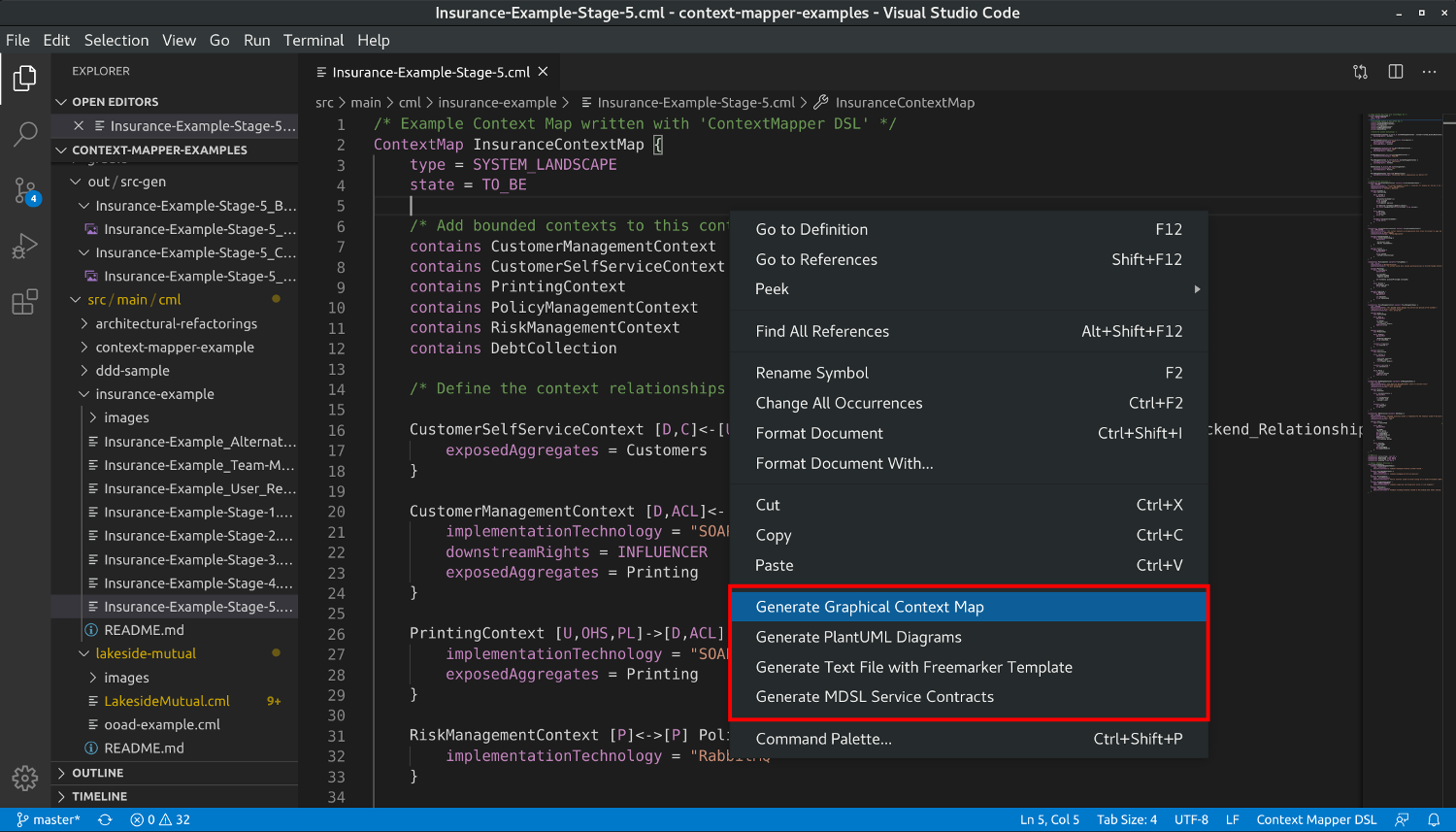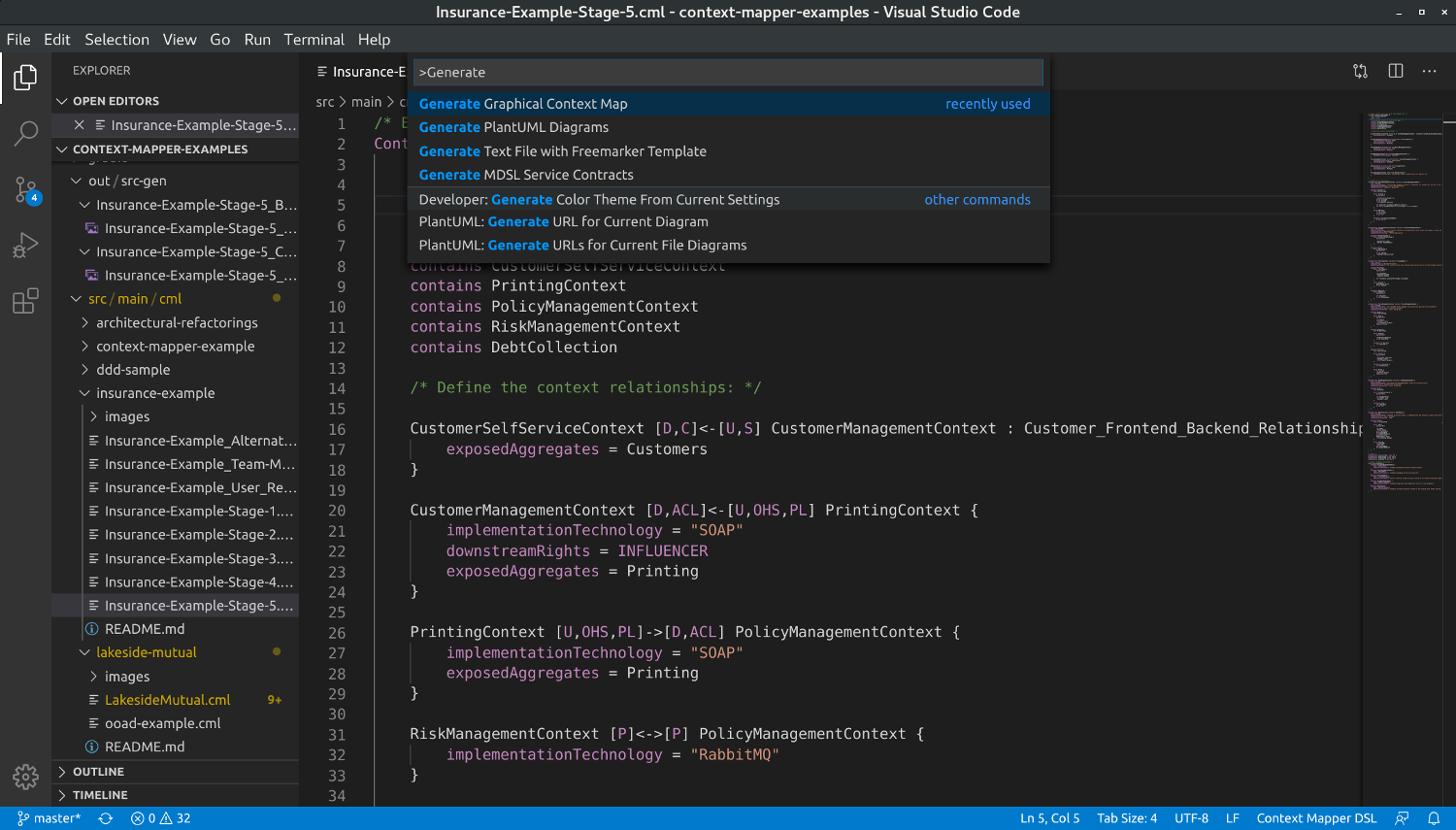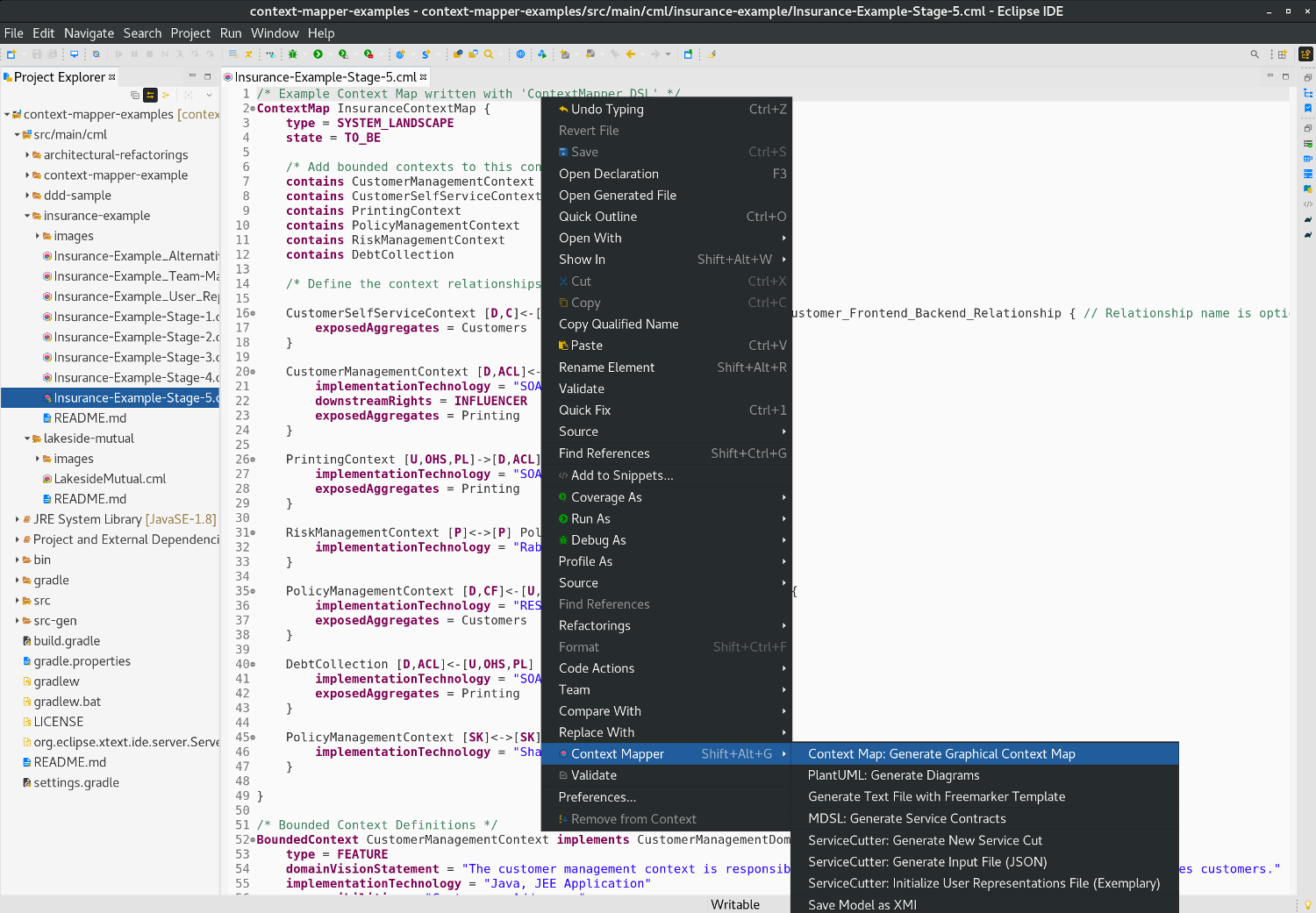Generators Overview
The Context Mapper generators provide transformations to derive graphical Context Maps, PlantUML diagrams, and Microservice Domain-Specific Langauge (MDSL) (micro-)service contracts from your CML context map. We also provide a generic, template-based generator based on Freemarker which allows to generate arbitrary textual files.
Generators:
- Graphical context maps
- PlantUML diagrams
- MDSL (micro-)service contracts
- Generic, template-based textual generator (Freemarker Templating)
Using the Generators
Visual Studio Code
The generators are implemented as commands in VS Code. You can find them in the context menu of the CML editor:
Alternatively you find them in the command palette (Ctrl+Shift+P):
Eclipse
The generators can be accessed through the Context Menu in the project explorer (right-click to *.cml file) or directly in the CML editor as the following screenshot shows:
Note: In the CML editor, you can also access all generators with the keybinding Shift+Alt+G quickly.
Graphical Context Maps
The Context Map generator allows you to transform the CML Context Map into graphical representation inspired by the illustrations of Vernon and Brandolini. You can find out how to generate them here.
A sample Context Map produced with our generator is:
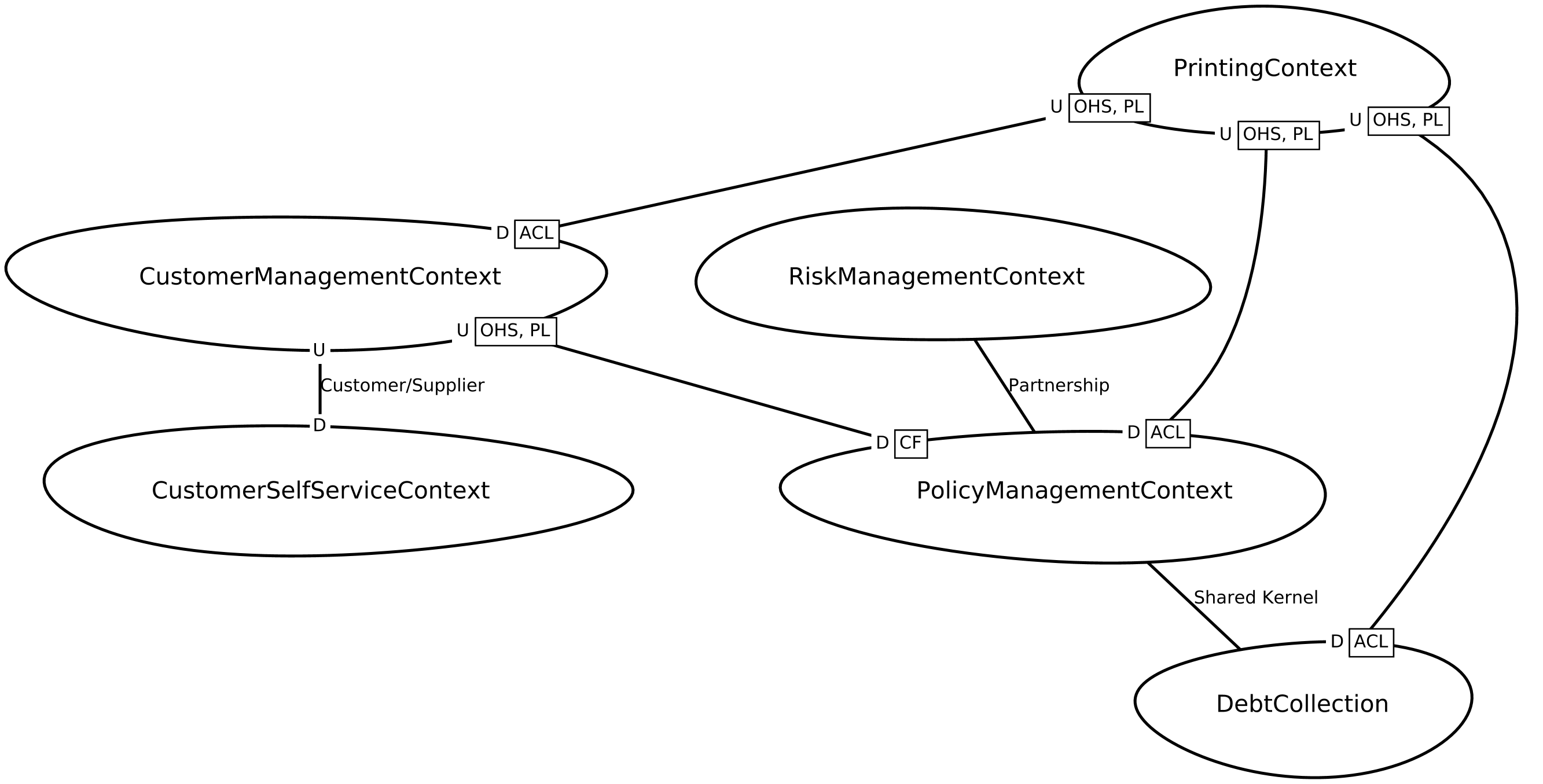
PlantUML Diagrams
You can generate plantUML component diagrams out of CML context maps. Additionally, the transformation generates UML class diagrams for all bounded contexts. If the implemented subdomains contain entities, the generator produces class diagrams for these subdomains as well. This page describes how to generate them.
Example component diagram (DDD sample):
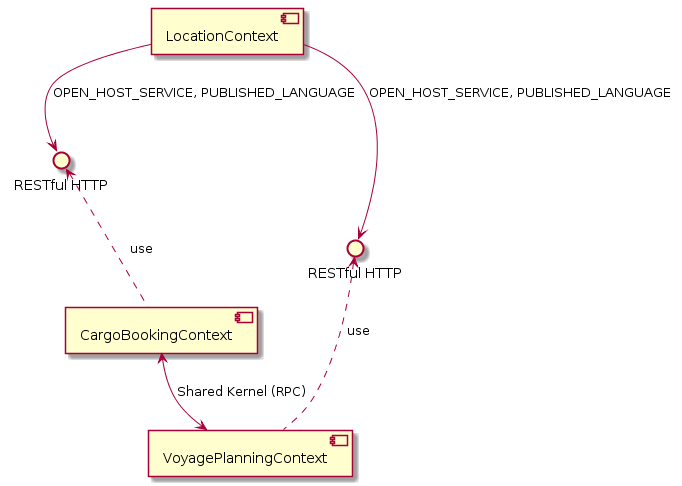
Example class diagram (Cargo booking context):
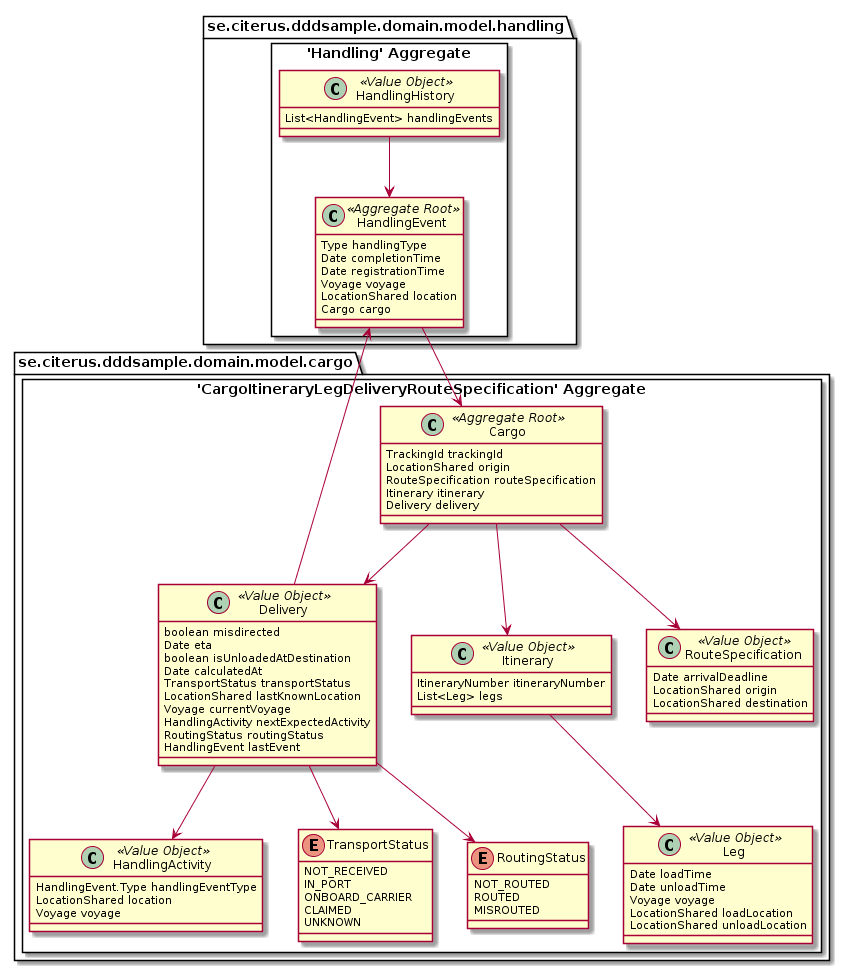
MDSL (Micro-)Service Contracts
With our MDSL generator you can generate (micro-)service contracts from your Context Maps (or, more precisely, from upstream bounded contexts that expose at least one aggregate that contains at least one operation in a service or entity). The resulting contracts illustrate how you can derive (micro-)services from strategic DDD context maps and provide assistance regarding how to implement your system as a (micro-)service-oriented architecture.
This is an examplary MDSL service contract for our insurance example:
// Generated from DDD Context Map 'Insurance-Example_Context-Map.cml' at 21.10.2019 17:48:52 CEST.
API description CustomerManagementContextAPI
usage context PUBLIC_API for BACKEND_INTEGRATION
data type Address { "street":V<string>, "postalCode":V<int>, "city":V<string> }
data type AddressId P
data type changeCustomerParameter { "firstname":V<string>, "lastname":V<string> }
endpoint type CustomersAggregate
serves as INFORMATION_HOLDER_RESOURCE
exposes
operation createAddress
with responsibility "Creates new address for customer"
expecting
payload Address
delivering
payload AddressId
operation changeCustomer
with responsibility "Changes existing customer address"
expecting
payload changeCustomerParameter
delivering
payload V<bool>
// Generated from DDD upstream Bounded Context 'CustomerManagementContext' implementing OPEN_HOST_SERVICE (OHS) and PUBLISHED_LANGUAGE (PL).
API provider CustomerManagementContextProvider
// The customer management context is responsible for managing all the data of the insurance companies customers.
offers CustomersAggregate
at endpoint location "http://localhost:8001"
via protocol "RESTfulHTTP"
// Generated from DDD upstream Bounded Context 'CustomerManagementContext' implementing OPEN_HOST_SERVICE (OHS) and PUBLISHED_LANGUAGE (PL).
API client PolicyManagementContextClient
// This bounded context manages the contracts and policies of the customers.
consumes CustomersAggregate
API client CustomerSelfServiceContextClient
// This context represents a web application which allows the customer to login and change basic data records like the address.
consumes CustomersAggregate
IPA
Learn more about the MDSL generator here.
Generic Textual Generator (Freemarker)
The generic, template-based generator allows you to generate arbitrary text files from CML Context Maps. It uses Freemarker as its template engine and exposes the entire CML content as an object tree whose elements can be injected into the template.
Learn more about this generator here.
